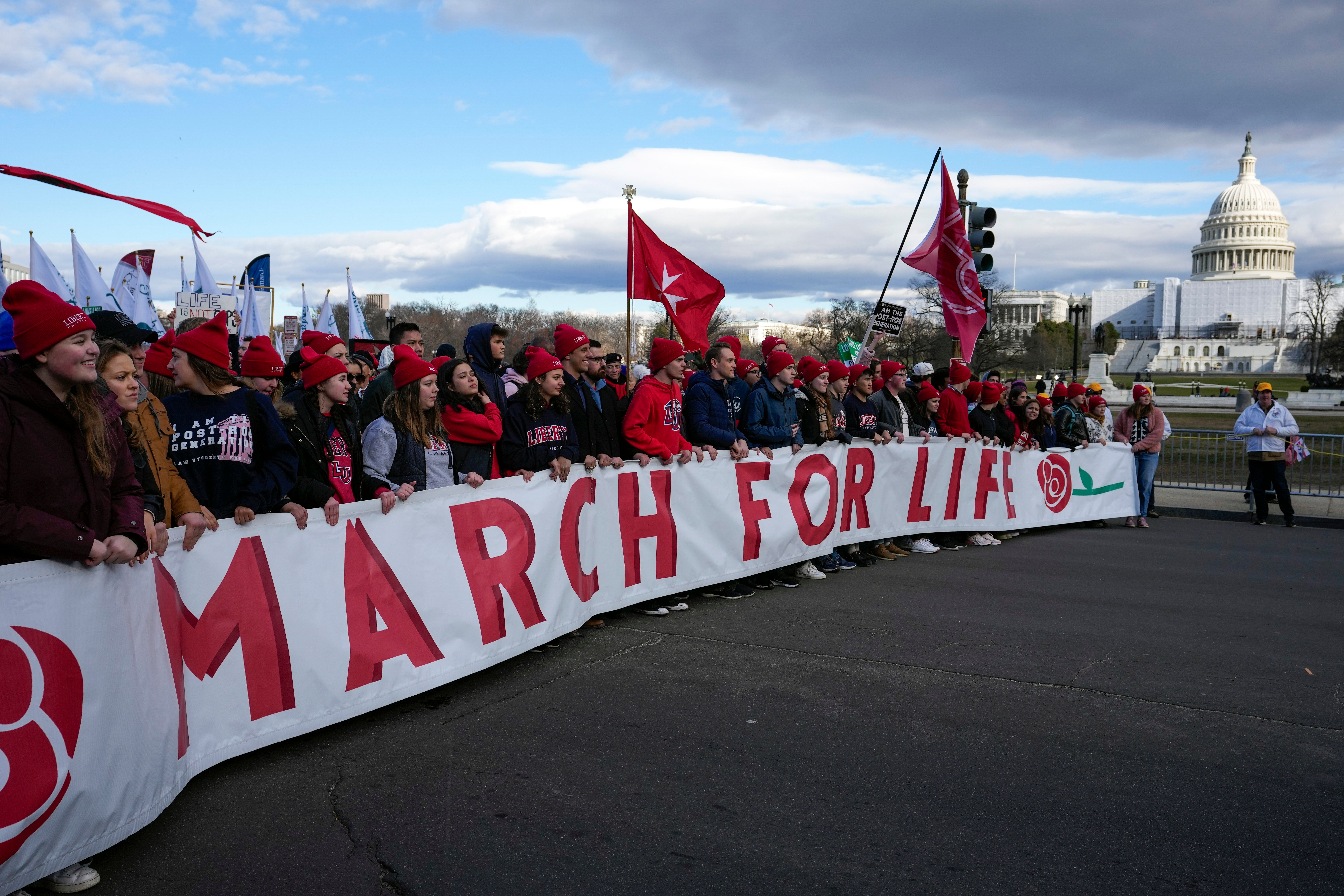Ohio city rewrites abortion ban, advocacy groups end lawsuit
Groups representing social workers and women say they have succeeded in forcing a small Ohio city to significantly narrow its abortion ban and dropped their lawsuit

Your support helps us to tell the story
From reproductive rights to climate change to Big Tech, The Independent is on the ground when the story is developing. Whether it's investigating the financials of Elon Musk's pro-Trump PAC or producing our latest documentary, 'The A Word', which shines a light on the American women fighting for reproductive rights, we know how important it is to parse out the facts from the messaging.
At such a critical moment in US history, we need reporters on the ground. Your donation allows us to keep sending journalists to speak to both sides of the story.
The Independent is trusted by Americans across the entire political spectrum. And unlike many other quality news outlets, we choose not to lock Americans out of our reporting and analysis with paywalls. We believe quality journalism should be available to everyone, paid for by those who can afford it.
Your support makes all the difference.Groups advocating for professional social workers and abortion rights said they have succeeded in forcing a small Ohio city to significantly narrow its ban on conducting or recommending abortions and so have ended their legal challenge.
The lawsuit by the National Association of Social Workers and the Abortion Fund of Ohio argued that the law, passed in May 2021, represented an “extraordinarily broad” infringement on the constitutional rights of due process and free speech. The groups' lawyers at the ACLU of Ohio and Democracy Forward further alleged the ban violated Ohio’s home-rule provisions.
The city of Lebanon, in southwest Ohio, opted to revise the law rather than defend it in court. Enforcement had been placed on hold while that work took place.
Opponents said they dropped their lawsuit Jan. 12 after provisions were removed that made aiding and abetting an abortion a crime, and the law was further clarified to assure that providing transportation, instructions, money or abortion doula services, including counseling, were still allowed.
Lebanon’s ban was one of four that cropped up around Ohio in 2021, part of a national effort to ban abortion “one city at a time” by the Texas-based Sanctuary Cities of the Unborn organization overseen by Mark Lee Dickson.
It was the first local ban to be challenged nationally after a leak revealed the U.S. Supreme Court planned to overturn Roe v. Wade. The court's ruling in Dobbs v. Jackson Women's Health Organization energized abortion opponents' state and local efforts to outlaw the procedure.
“This litigation exposes local ordinance bans as dangerous acts of political theater, and our lawsuit demanded accountability for the logistical and legal nightmare Lebanon’s City Council created," Maggie Scotece, interim executive director of the abortion fund, formerly Women Have Options-Ohio, said in a statement. "This win is so unique in the context of our post-Dobbs legal landscape, establishing a strong, united front against these heinous attacks.”
Dickson, a Southern Baptist minister who also directs Right to Life East Texas, said the revisions to Lebanon's ban were of little consequence to the underlying goal of the law: outlawing abortion in the city of about 20,000 beginning at conception.
“Abortion remains illegal in Lebanon, so this is a great victory for Ohio,” Dickson said. “It’s worth pointing out that the opposition claims that we were doing more than we were actually doing. The fact that we clarified our position does not take away from the abortion ban.”
The Ohio opponent groups argued that, despite Lebanon having no abortion clinics, the sweeping ban appeared to require social workers not to discuss abortion when counseling pregnant clients, in “conflict with social workers’ ethical obligation to promote the client’s self-determination.”
The social workers’ association took the position that reproductive freedom is a human right.
According to the Texas anti-abortion group’s website, 65 cities and two counties across the U.S. have so far passed similar abortion bans. Dickson said the group will continue its work this year in New Mexico, where the Democratic attorney general has moved to nullify similar local abortion bans, as well attempt new inroads in Nebraska, Kansas and California.
“There is still a lot to do, even though Roe has been overturned, to promote abortion-free communities,” he said.
A federal judge has placed Ohio's statewide ban on most abortions on hold as a constitutional challenge is heard. Republican Attorney General Dave Yost has appealed to the Republican-controlled Ohio Supreme Court to block the federal judge's order.